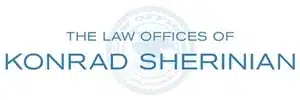Copyright infringement may include more than just illegally downloading music. Copyright laws apply to all kinds of content used in business, science, education, the arts, and many more. Making sure that original works are protected from being copied by other people can be as crucial to the creator of the document as for the people who seek access.
This article outlines the basics of copyright infringement and the Types and Consequences of Copyright Infringement.
What Exactly Is Copyright Infringement?
If someone reproduces, distributes, publically displays, or creates derivative works from others’ original works without a license, they are committing copyright infringement.
Types of Copyright Infringement
Since there are so many types of copyright violations, there are many types of copyright infringement. Examples include, but aren’t restricted to:
- Long chapters from books
- Blog posts, poems articles, poems, or other written works from your writing
- Portions of a scientific article that does not qualify as fair use
- Music clips that are part of a video without the permission of the creator of the music
- Architectural plans or drawings of any building without the author’s consent
- Sounds or images that are generated by computer programs
- The production of plays without the permission of the playwright
- Illustrations to accompany a blog post or article
It is important to note that this is just an insignificant sample of ways copyright protection can be applied to creative works. If you’re not an attorney, you’re not likely to know the full range of possible types of infringement. Therefore, you’re more likely to err. If you have any questions you should seek the advice of a copyright attorney.
What Are the Consequences of Copyright Violation?
The consequences of infringing another party’s copyright rights depend on the infraction’s extent and severity.
· Civil Proceedings
The law provides you with the power to safeguard your intellectual property. However, the state cannot do this for you. Therefore, as a copyright owner, you have the legal right to initiate legal action against those who infringe on your copyright. The proceedings must occur within three years from the date of the incident.
· Final Decisions May Have Various Effects
Damages: a financial payment to the owner of the copyright in order as compensation for misuse of their work that was not authorized. Profits account for the payment of any earnings that the infringer made from the copyrighted material rights of the owner.
· Criminal Legal Proceedings
Copyright infringements usually become criminal offenses only when there’s a commercial aspect at play. This could include copying another person’s work commercially and selling it, possessing an instrument used to simulate the job, or importing an infringing piece of work for sale on a large scale.
· Punishment for Copyright Infringement
In the U.S., copyright enforcement is the sole responsibility of federal courts. It is important to note that the copyright holder can’t claim copyright infringement without having an issued copyright registration with the U.S. Copyright Office.
· Statutory Damages
This refers to the award of damages, among the primary penalties against copyright infringers. Additionally, the holder of the copyright can demand statutory damages if you are found to be infringing the copyright rights of a copyright holder who timely registered their copyright.
· Actual Damages in the Event of Copyright Law Violations
If statutory damages are not applicable, actual damages will always be available. In that scenario, the defendant could be responsible for damages incurred and any profit derived from the infringing act. To prove profits, the copyright owner must provide proof of the infringer’s total profits.
· Lawyer’s Fees and Costs for Copyright Infringement Cases
The court may require the violator to pay the copyright holder’s court and attorney’s costs. The copyright owner can avail of these rights only if they have timely registered their copyright.
Bottom Line
As with other laws governing intellectual property, Copyright law is designed to reconcile the private desires of creators and the general public’s need for freedom and accessibility. It’s not always the case that disputes over copyrights are resolved in ways that appear fair.
Nevertheless, certain levels of protection for intellectual property are vital to encourage innovation in research, business, and the arts due to the benefits (financial and otherwise) it offers creators. In the end, copyright protection is essential for both small and large companies, and knowing the mechanisms of infringement is crucial for interacting with copyrighted content at any scale.
You can get help with this at every stage of the procedure from our Chicago, Copyright infringement lawyer. However, by getting in touch with The Law Offices of Konrad Sherinian quickly, we can work to prevent problems from escalating.
